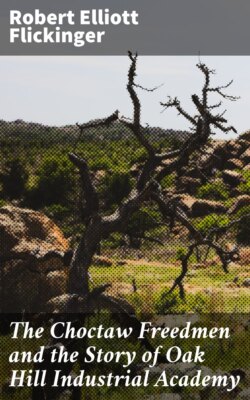Читать книгу The Choctaw Freedmen and the Story of Oak Hill Industrial Academy - Robert Elliott Flickinger - Страница 79
На сайте Литреса книга снята с продажи.
JOHN CALVIN
ОглавлениеIn 1527, John Calvin, a man of great learning and glowing eloquence with burning zeal for the honor of his Master, appears as the leader of the Reformation in France, but nine years later, joins Farrel, the successor of the zealous but fallen Zwingli, in Switzerland, and becomes head of the university at Geneva. He secures the adoption of a constitution, that gave and also limited the authority of the church to spiritual, and of the state to temporal matters; and thus prepares the way for the separation anew of church and state, and the enjoyment of civil and religious liberty.
Educated for the priesthood, he is assigned a parish and there obtained a copy of the Scriptures. When he discovered the erroneous teaching and practices of the church of Rome, he resigns his charge and completes a course in law and another in theology in the University of Paris. He becomes a man void of fear and is borne onward on the wings of a living faith. Following the example of Paul in his letters to the churches, and of Augustine, bishop of Hippo (391–446) in North Africa, he undertakes to state in a systematic form the great facts and doctrines of the Bible, as one of the best means of opposing and overcoming prevailing errors and corrupt practices in church and state.
He feels the Spirit of God moving him to blazon triumphantly, the thought of God's sovereignty and man's utter dependency, in order to dash in pieces the prevalent self righteousness. His writings, by emphasizing the supreme authority of the Divine Word, have tended to raise the moral standard of individuals and communities, and by emphasizing the moral law, to lessen the distinction between the "sins" of the Bible and "crimes" of the civil law. Their tendency has been to make the moral law the rule for states as well as persons.
Presbyterianism, or government of the church by ruling elders and presbyters as in the apostolic period, and Republicanism, government by representatives, are advocated with transcendent ability, and success. After the death of Luther in 1546, Calvin exerts a great influence over the thinking men of that notable period in Switzerland, France, Germany, Holland, Italy, England and Scotland. The young preachers, sent out from the university at Geneva, establish 2,150 reformed congregations in these countries, and in 1564, the last year of his life, the confession of the reformed churches in France is officially recognized by the state.
An ardent and effective friend of civil liberty, he makes the city of his adoption the nursery of a pure, noble civilization; and the little republic of Geneva becomes the sun of the European world. Animated by his example and principles, William, prince of Orange, in 1580, establishes the Dutch Republic in Holland, and it becomes "the first free nation to put a girdle of empire around the world."
Bancroft, the historian, in summarizing the influences that contributed to American Independence makes this creditable reference to Calvinism.
"We are proud of the free states that fringe the Atlantic. The Pilgrims of Plymouth were Calvinists, the best influences in South Carolina came from the Calvinists of France. William Penn was a disciple of the Huguenots; the ships from Holland, that in 1614 brought the first colonists to Manhattan (New York), were filled with Calvinists. He that will not honor the memory and respect the influence of Calvin, knows but little of the origin of American Liberty."
